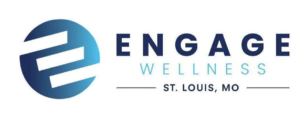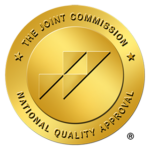Learn more about
Dual Diagnosis & Addiction Levels of Care
Over 100 years of studies in addiction recovery show that individualized, precision care is the best approach to facilitate success. At Engage Wellness, we know that each client’s recovery journey is unique. Any type of “one for all” treatment approaches fail to activate true healing.
Our treatment services blend medication-assisted treatment, behavioral health, and community support at every level along the continuum of care to offer the best possible outcome for you or your loved one. We promise to love you when you don’t love yourself. To meet you where you are today and help you get closer to where you want to be, closer to who you want to be. Find your support system here and get started on your recovery journey today.

Levels of Care In Recovery | St. Louis, Missouri Drug Rehab
Each person’s recovery journey is unique. One-size-fits-all treatment approaches fail to help you achieve the ultimate outcome: healing. Engage Wellness offers several levels of care to meet you where you are today and move you closer to where you want to be in your recovery journey.
While Engage Wellness Missouri does not offer in-house detoxification services, we work with an extensive network of local, trusted providers who can fill the gap on a referral basis. We only work with detox treatment facilities that are as dedicated to your comfort and success as we are.
Collaborating closely together, we’ll design a customized treatment plan that will help you seamlessly transition from detox to intensive outpatient care and ultimately, long-term addiction treatment. This is where you lay the foundation for recovery that we build on later to support a lifetime of sober living.
During the day, you will receive individual therapy, participate in group sessions, enjoy some recreational time in our shared lounge spaces, and work on building new, healthy coping and life skills.
At this stage of recovery, you’re building a whole new life. The structure of a PHP program offers safety and encouragement to stay the course. It supports your sobriety while helping you learn new and positive ways to cope with challenges, overcome harmful habits, and restore the balance in your life. Our PHP program is where you build the foundation for a sober and healthy future.
The Intensive Outpatient program (IOP) is the highest level of care offered at Engage Wellness Missouri. This treatment level offers an easy transition from inpatient care to treatment that’s integrated into everyday life. This is a step-down in intensity that allows you to begin living a sober life right now while still benefiting from part-time treatment.
Our approach seamlessly blends the treatment experience with the demands of your personal, professional, and academic life to support your recovery in every way possible. IOP clients will attend multiple sessions per week, including both individual therapy and group therapy. You will also benefit from additional recovery education, peer support, and other interventions to support therapy training.
An intensive outpatient program empowers you to live your sober life on your terms. Join the community today and start building on the foundation of recovery.
This is especially important during early recovery when physical, mental, and emotional thresholds are tested every day. Medication-assisted treatment is an integrated approach that offers both a healthcare component and addiction treatments and therapies for symptom relief and practical skill development.
With symptom relief, clients are better supported to focus on treatment and find healing.
Each client will receive a customized treatment plan based on mental health conditions, substance use history, and physical health to determine the best course of action.
Clients at the Outpatient level of care will participate in weekly therapy sessions, receive ongoing community access, benefit from medication management, receive case management assistance, and receive continuing support and education.
Within the outpatient community, you can live at home, stay focused at work, and attend school without losing touch with the treatment environment. Stay connected with your circle of peers and maintain recovery success.



